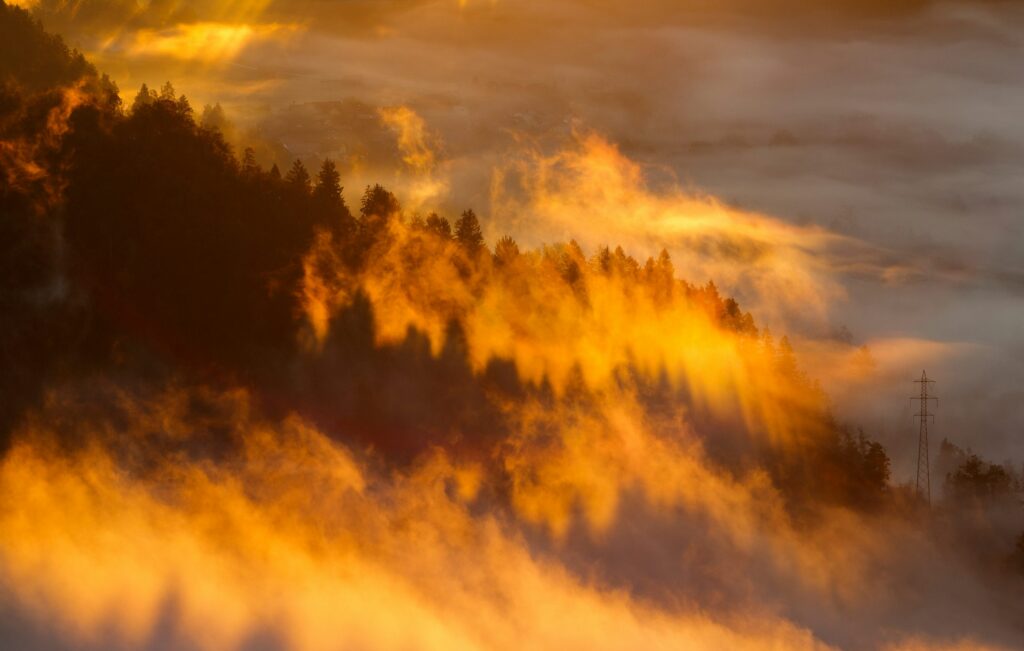One of the annoying habits we aim to cultivate here at CDN is that of looking stuff up. When politicians and important people turn an important topic into a slogan, it’s a give-away that it's time to check the numbers. And that they probably didn’t bother. For instance, we've grown accustomed to our Environment Minister and others pointing to forest fires as an example of the "impacts" of global warming. If so, count it as a positive impact, because we checked and forest fire numbers in Canada have been trending downwards since 1990.
It's worth pondering for a moment whether the alarmists really believe their own factual claims. They scan the horizon for any sign of harm for what appears to be the perverse pleasure of informing us the future is bleak and it’s all our fault. (As I have argued elsewhere, the claim that global warming is a religion is strongest in its tendency to call us sinners and demand that we repent or face divine wrath, in this case that of Gaia.) But the manner in which they locate harm and attribute it to warming is very peculiar.
It’s instructive to see how they react if something they claim is getting worse turns out to be getting better. Sometimes they just stop talking about it. Polar bears, for example, seem to be getting a bit of a rhetorical break after predictions of their demise were exposed as wildly exaggerated. But oftentimes they simply carry on insisting the situation is getting worse and worse, ignoring readily available evidence that often originates, as that forest fire data does, with the same government they represent. And while brushing aside facts they call anyone who challenges them a denier, a dirty term that deliberately links an open mind on man-made climate change with denial of the Holocaust.
"Denialism," it turns out, usually means looking at the numbers. Canadian forest fire data from the National Forestry Database show that the total area burned is showing a slight tendency not to hit the highs of past decades. But to explain that result requires taking into account a complex pattern, including efforts at firefighting and the ecology of letting some fires run their course.
What is particularly interesting is the declining number of fires that get started. Whether sparked by lightning or human carelessness, a forest fire needs warmth and dry kindling to get going. Maybe that's why so many alarmists just assume, without bothering to check, that since there's been all this warming, and warming is assumed to make droughts dryer and floods wetter, there must be lots more fires. But there aren't.
How can we account for this result? Here we see another peculiar aspect of alarmist thinking. If the number of fires were trending upwards, as when anything is getting worse, you know they would confidently be attributing the trend to greenhouse gas emissions. But will they attribute declining numbers of fires to greenhouse gases? Of course not.
In refusing to do so they are probably right. The natural world is not a one-variable system. It's complicated. But it’s also complicated when something you don’t want is becoming more common. The real enemy to progress in scientific understanding is the pretense that we have a simple explanation for everything. Or at least everything that serves a political and social agenda of predicting doom and demanding repentance.



Polar bears are iconic of global warming! Why, in the mid-1960s, the circumpolar population was upwards of 5,000. A mere 50 years later, there's only 25,000 of them left!
You realize, of course, that a mountain pine beetle infestation has devastated B.C. (and to a lesser extent, Alberta) forests since the 1990s. By now, combustible material is stacked like cord-wood throughout the forests, dry as tinder. The surprising thing would be if there were NOT "record-breaking" forest fires in that region. It is beyond human capabilities to manage nature.